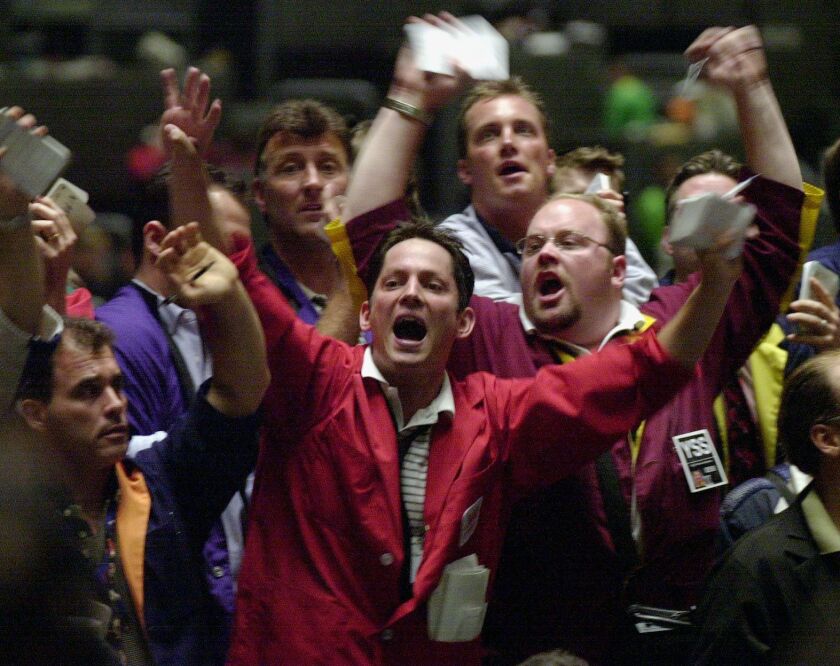CME Group, the owner of Chicago’s futures markets, said Tuesday it will permanently close most trading pits that were shuttered in March 2020 because of the pandemic.
The company’s brief announcement didn’t get into reasons for the decision, but many traders had suspected that the coronavirus would cause the traditional pits to be closed for good.
Futures trading in Chicago used to be defined by the raucous, crowded pits where traders did business via hand signals, but almost all the activity now occurs electronically.
CME said the lone exception would be the options pit for Eurodollar contracts, which was reopened last August with adjustments to increase social distancing.
In futures trading, options transactions can be complex, so some of the trading volume is still executed in a physical space.
In a related change, CME said it would no longer offer its floor-based futures and options contracts tied to the S&P 500 after Sept. 17, when the September contracts expire. At that date, all financial positions will be moved to a smaller version of those contracts—known as E-mini S&P 500 contracts—that are traded electronically.
The S&P futures pit in Chicago was a go-to place to see the daily marketplace action.

Click here to read Neil Steinberg’s in-depth 2015 look at the history of Chicago’s storied trading pits.
CME spokeswoman Laurie Bischel said that before the closings due to COVID-19, it had 13 pits in operation. Most dealt in options for various investments, such as grains, livestock, equities and U.S. Treasury bonds.
The company closed most of its trading floors for futures in 2015.
CME owns the Chicago Mercantile Exchange and the Chicago Board of Trade, traditional rivals that came together in a 2007 merger.






